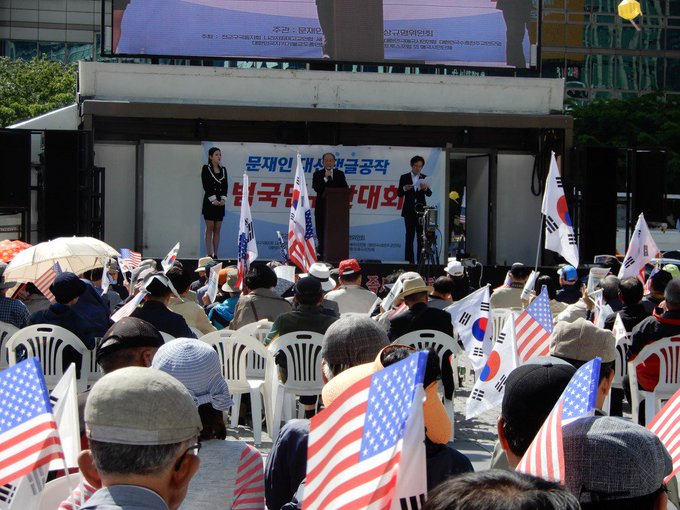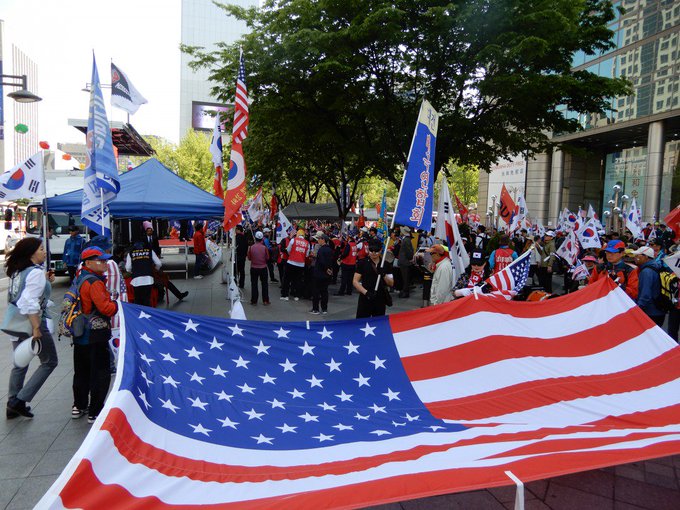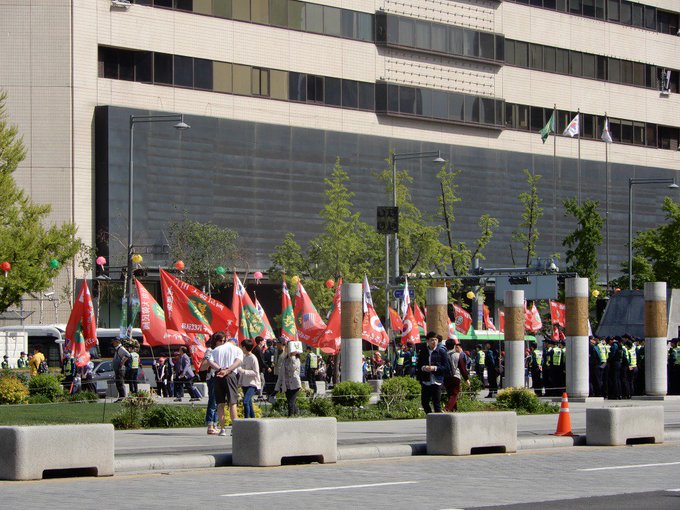The inter-Korean summit took place between South Korean President Moon Jae-in and North Korean Supreme Leader Kim Jong Un on the South Korean side of the Joint Security Area on April 27. This meeting was an important step towards a peace in the region and a significant event for the entire eastern part of t Eurasia.
Following the summit, the sides signed a joint declaration that affirms bringing peace and unification of the Korean Peninsula. It aims at “achieving a nuclear-free Korean Peninsula through complete denuclearization” and establishing “a joint liaison office with resident representatives of both sides in the Gaesong region in order to facilitate close consultation between the authorities as well as smooth exchanges and cooperation between the peoples”.
China’s Ministry of Foreign Affairs released a statement of spokesperson Lu Kang’ saying Beijing “welcomed” positive outcomes of the summit. Kang stressed that “China stands ready to continue to play its positive role to this end”.
Russian President Vladimir Putin and South Korean President Moon Jae-in had a telephone conversation over the North-South Korean summit, Kremlin Press Office stated on April 29:
“While exchanging their opinions, the two sides positively assessed the agreements reached at that meeting. Special attention was paid to the intention to secure the non-nuclear status of the Korean Peninsula enshrined in the Panmunjom Declaration through its total denuclearization.”According to the statement, “Vladimir Putin reaffirmed Russia’s readiness to continue facilitating practical cooperation between the Republic of Korea and the DPRK, including through major trilateral projects in infrastructure and energy.”
Prime Minister Shinzo Abe said on April 27 Japan welcomed the summit between the leaders of the North and the South as a positive step and he strongly expected Pyongyang to take concrete steps towards to carry out its promises.
Japan’s Ministry of Foreign Affairs stated that Japan “hopes that North Korea, in accordance with the provisions of the relevant United Nations Security Council resolutions, takes concrete actions for the dismantlement of all weapons of mass destruction”.
It is interesting to note that a mango mousse that had been on the menu for the inter-Korean summit caused a stir in Tokyo because it had featured a map of the Korean peninsula including islands Japan claims as its own. “It is extremely regrettable,” Japanese Foreign Ministry spokeswoman said on April 25 adding that Japan had lodged a protest.
US President Donald Trump praised the declaration between Moon and Kim, writing “KOREAN WAR TO END!” in Twitter. Now Washington is reportedly setting the details over the becoming meeting between North Korea and the US.
Meanwhile, a number of soft power tools and means has been implemented to undermine the results of the 2018 summit.
On April 27, hundreds of South Korean activists under South Korean, US, Israeli flags gathered for an anti-North protest with controversial banners, calling for their northern neighbors to be ‘bombed’. “It’s time to bomb North Korea,” claimed a banner seen in the protest against the inter-Korean summit in Paju city, just south of the “truce village” of Panmunjom.
Some US official also raised their skepticism over the North Korean intend to denuclearize, saying the dismantling of the North’s weapons program must be “irreversible” and verifiable.
National security adviser John Bolton reacted coolly to word that North Korean leader Kim Jong Un would be willing to give up his nuclear weapons. On April 29, Bolton said on CBS’ TV channel “we’ve heard this before.” He stated that North Korea’s propaganda playbook “is an infinitely rich resource.”
Some analysts consider Moon’s agreement with Kim at the summit as a disappointment, citing the lack of references to verification and timeframes and also the absence of a definition on what would constitute a “complete” denuclearization of the peninsula.
A major part of the Washington establishment is not interested in the Korean peace and unity. Thus, certain direct or indirect action may be carried out to prevent the further detente and reintegration at the Korean peninsula.
For own part, SouthFront heartily congratulates the Korean nation with this important step en route to the peace and reunification. We hope that no deconstructive interference will influence further development of the Korean peace process.




Comments
Post a Comment